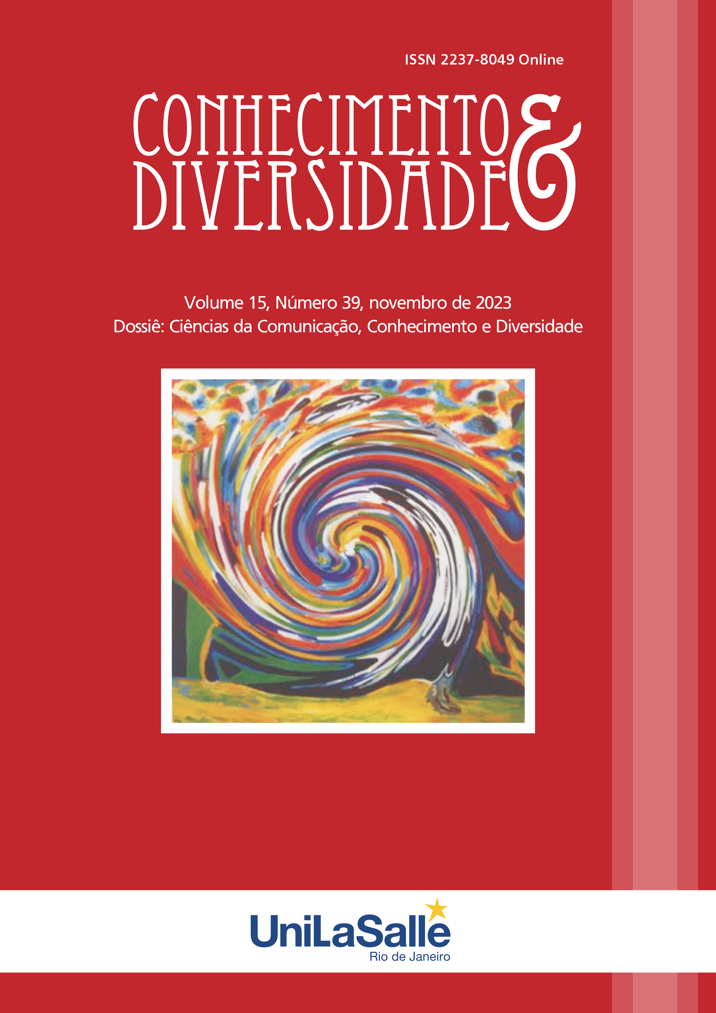PLURILINGUALISM
COGNITIVE HORIZONS WITH A FLAVOR OF ALIENATION
DOI:
https://doi.org/10.18316/rcd.v15i39.11197Keywords:
Identity, Language, Multilingualism, Alienation, Globalization, Covid19Abstract
Identity is externalized in a variety of ways and is closely related to the language. Whose relationship is characterized by its problematic nature when added to the multilingualism that we find rooted in both the individuals as in societies, and that influences, especially, the opening of new cognitive horizons, in addition to the construction of social harmony, in the face of terrible globalization that prevails in the world from one end to the other. This can materialize through the impact of the phenomenon of globalization considering conflict of values and references on identities and cultural specificities. Another important fact is Covid19, the pandemic that has given rise to a global cultural and identity crisis in which many have missed patterns of everyday life. And here appears the rationalization of the linguistic field, especially during and after the pandemic. It is a requirement to achieve the development and the progress, starting of the fact that the language It constitutes the identity of every society, and because it expresses their culture, thought, history and hopes, and any confusion in its social use creates a linguistic and cultural chaos that negatively affects the identity of the individual and the society. The language Here it is not just words, but it refers to thought. Furthermore, the identity in the light of ideological and religious conflicts is no longer limited to an ontological problem in the one that the person questions the ultimate goals of existence and its causes but is considered a reference to the meaning that the individual forms through the society, additions, and accumulations socio historical. However, despite the frequent exhortations, to the use of the mother tongue and its better way management - consequent with what is stipulated in the constitution, it is noted that the media , official speeches and others did not pay clear attention to this, thus causing - a complete linguistic chaos, and perpetuating the media dependence from abroad, and all this has a negative impact on the national identity . a mix provocative linguistics in every sense; so what with that development can we dream in the light of linguistic neglect? In this framework, this research will try to answer the following crucial problem: How to reconcile the sword of new cognitive horizons and the wall of the alienation? Having in account the porosity of the concept of identity and its multiplicity of manifestations as a living concept in the framework of the training through _ evolution that fosters dialogue and conflict of identities in the framework of its multiple contexts.
References
Adria, Blackledjed. (2005). Discurso y poder en un mundo multilingüe. John Benjamin Publishing Company. Amsterdam y Filadelfia.
Al-Abed, Hassan, Abdullah. (2004). El impacto de la globalización en la cultura árabe. Dar Al-Nahda Al-Arabiya. Beirut. 1ª edición.
Calvet, Louis, Jean. (2004). Guerra de lenguas y política lingüística. Traducido por: Hassan, Hamza. Publicaciones de la Organización Árabe para la Traducción. Beirut.
Coupland, Nicolas. (2010). Manual de lenguaje y globalización. Wiley Blackwell Edition. Reino Unido.
Doytcheva, Milena. (2005). Multiculturalismo. Discovery Edición. París.
Ennaji, Moha. (2005). Multilingüismo: cultural, Identidad y Educación en Marruecos. Edición Springer. Londres y Nueva York.
Meredith, Williams. (2002) Wittgenstein. Mente y significado: hacia una concepción social de la mente. Routledje. Londres y Nueva York.
Nat Bartels. (2005). Lingüística Aplicada y Formación de Profesores de Idiomas. Edición Springer. EE. UU.
Wright, Sue. (2004.) Política lingüística y planificación lingüística: del nacionalismo a la globalización.Palgrave Macmillan Edition. Reino Unido.
Downloads
Published
Issue
Section
License
Copyright (c) 2023 Taoufik Chakkor, Zacaria Charia, Lahiala Abdelfattah

This work is licensed under a Creative Commons Attribution 4.0 International License.
As recommended by the Public Knowledge Project, RCD adopts for its articles a CREATIVE COMMONS Attribution CC BY 4.0 license.
This license allows others to distribute, remix, adapt and build upon your work, even commercially, as long as they credit you for the original creation.
This is the most appropriate license offered.
Recommended for maximum dissemination and use of licensed materials.



